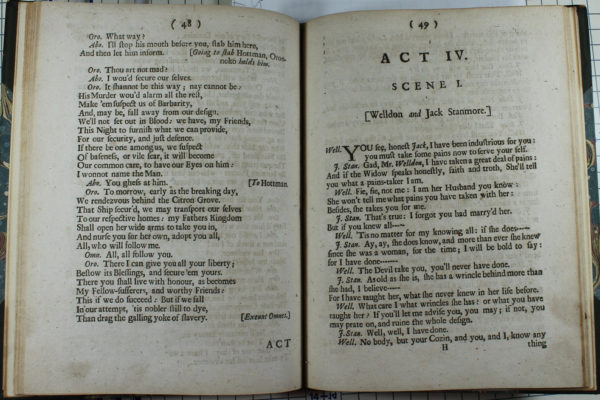Seminars about William Shakespeare held by professor Jonathan Hope
In the seminars held by professor Jonathan Hope, we were shown some ways to analyse Shakespeare’s corpus thanks to digital tools. These new means can be very useful to understand how Shakespeare used language in a single text, for example, or in his whole career; synchronically and diachronically I would say. This can be useful for stylistic analysis and for translation studies too, that is why we were asked to choose, in groups, one or two interesting or complicated words to be looked for in the websites and in the databases indicated by prof. Hope himself. My group and I decided to look for the verb “institute”, which is to be found in the first act of “The Taming Of The Shrew” (1593), in the line 8, where the character Lucentio says: “Here let us breathe and haply institute a course of learning and ingenious studies.”
Analysis
We chose this word, and spoke about it, because I found it interesting and challenging while I was doing my translation essay on that part and I suggested it to my colleagues, that of course agreed. We thought it was an interesting word because it did not look as a common word and we wanted to see if we were right and, moreover, what the digital tools could suggest us about its usage in the Early Modern Period. In this case “institute” means simply “begin” and not “establish” or institute in the sense of creating something new. As I also wrote in my previous essay and as we understood by reading his speech in the opening scene, Lucentio speaks in a poetic way that often may sound too pompous.
Thus probably that verb was not actually common or for an everyday usage
as we rightly thought, but we had to be surer about it. Firstly, we started from the version of the play edited by Barbara Hodgdon, who explains that it’s likely that Lucentio is being pedantic and, as I’ve said earlier, pompous. Secondly, we saw that “institute” is a word with Latin roots[1], and that means that it is most likely a word for formal occasions and contexts. We decided then to improve our research by using the digital tools. What about the other works by the Bard? Is “institute” common or is it rare as we thought? After a research we found out that it is actually more than rare, indeed, “institute” (no matter if as a noun or as a verb) appears just twice in the whole Shakespeare corpus[2], and that means that it is not a common word at all. However, we could not stop there, we had to analyse also the Early Modern Period to see if we could find similarities. That is why we decided to use EEBO N-GRAM BROWSER. Thanks to its diagram we were able to realise that our word was not very common during Shakespeare’s times, but, surprisingly, it was quite common some decades earlier. As we can see from FIG. 1, the graph reaches its peak around the half of the XVI century and starts to drop as it gets closer to 1593. This, in our opinion, explains why Lucentio uses it in a pedantic way.
 -FIG. 1
-FIG. 1
Moreover, after checking the instances, we discovered that “(to) institute” was mainly used in religious texts and in religious/formal contexts, thus confirming the idea suggested by Barbara Hodgdon about Lucentio’s pedantry. Indeed he could have simply said “begin”, as in the play he is just talking with his servant. To conclude, these digital tools may be very helpful and useful in the future, as they offer a wide range of possibilities that were absent just some years ago. Indeed, they can bring us all Shakespeare’s plays on the screens of our computers by just a couple of clicks, this way we are able to make a kind of research such as the one above. Probably checking books in a library is more romantic, but it is not as fast and precise and may also be harder: that is to say that to see the usage of a single word during an entire period of time we should have gone to hundreds of libraries, checked all the books of that period and every single page with no clues whether the wanted word is there or not. It would have been tiring and probably also infructuous. Digital tools are, then, a precious tool that have brought us new opportunities.
Bibliografia
[1] https://en.oxforddictionaries.com/definition/institute
[2] The other instance is in Henry VI, Part I https://www.opensourceshakespeare.org/concordance/o/?i=776852&pleasewait=1&msg=sr (13/04/2017)
Articolo di,
Cristiano Morgia









